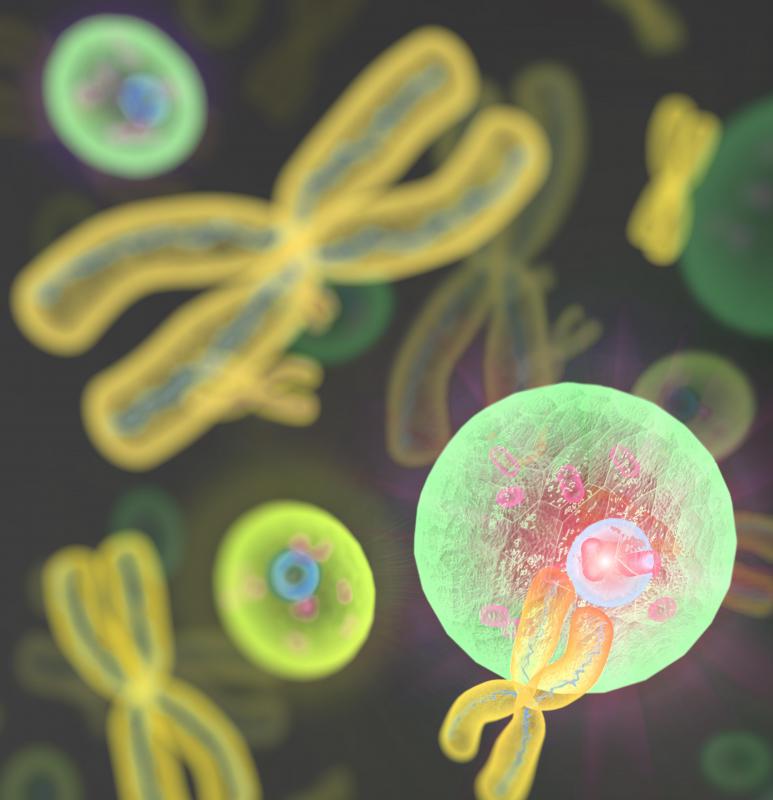At WiseGEEK, we're committed to delivering accurate, trustworthy information. Our expert-authored content is rigorously fact-checked and sourced from credible authorities. Discover how we uphold the highest standards in providing you with reliable knowledge.
What is Gene Duplication?
Gene duplication is the process by which a chromosome or a portion of DNA is duplicated, resulting in an additional copy of a gene. Gene duplication is also referred to as chromosomal duplication or gene amplification. Duplication, which means to double, results in two identical genes. One or both of these genes may change over time through mutations to create two new different genes.
Deoxyribonucleic acid (DNA) is unique to each organism and is the same in every cell making up that organism. Genes are sections of DNA that determine heredity and are housed in sections of the body known as chromosomes. This makes up the genetic makeup of all organisms.

Gene duplication usually occurs due to an error during meiosis. Meiosis occurs only in those cells that produce sex cells, such as sperm and eggs in humans. During meiosis, parent cells with two copies of the chromosomes produce four daughter cells that each only has one copy of each chromosome. This is so that when reproduction occurs, the cell that is created by the fusion of the sperm and egg will have the correct amount of DNA.

During meiosis, gene duplication is likely to happen when chromosomes cross over and recombination occurs. The strands of the chromosomes can break and rejoin to the opposite chromosome, so that genetic information is moved from one chromosome to another. If the recombination is unequal, or it happens with differing amounts of DNA, duplication can result.

Another way that duplication can occur is if the entire chromosome is replicated twice. This error will result in one of the daughter cells having an extra copy of the chromosome and all the extra genetic material. If this cell fuses with another cell during reproduction, it may or may not result in a viable zygote.
The last way that gene duplication can occur is through retrotransposition. During retrotransposition, sequences of DNA are copied to RNA and then back to DNA instead of being translated into proteins. This results in extra copies of that DNA being present within the cell, which can rejoin with the chromosomes that are already present. Any genes found along these sequences of DNA will have been duplicated in the process.

When gene duplication occurs, a copy of the original is created, which is called a paralog gene. It is possible that both or one of the genes will mutate, however that is not always the case. During the mutation or change process, genes may acquire functions that are different than the original gene.
The original gene may also mutate, forming two genes that are different from the original gene before duplication. Gene duplication is considered to be a driving force in the emergence of new genes and thus changes in normal biological processes. The processes of gene mutation and duplication both play key roles in evolution.
AS FEATURED ON:
AS FEATURED ON:














Discussion Comments
Does gene duplication explain why the genome has become so complicated and contains so much information? An "intelligent design" theorist named Alastair Noble said recently, on Radio Scotland, that the information contained in DNA is so immense that it points towards a designer. His argument was that an intelligence of some sort (possessing prior knowledge) is the only possible, or at least the most likely, source of information. However, it seems to me that gene duplication might be a process that adds information (in the sense of imparting an essential or formative characteristic) without the need for a prior intelligence.
Post your comments